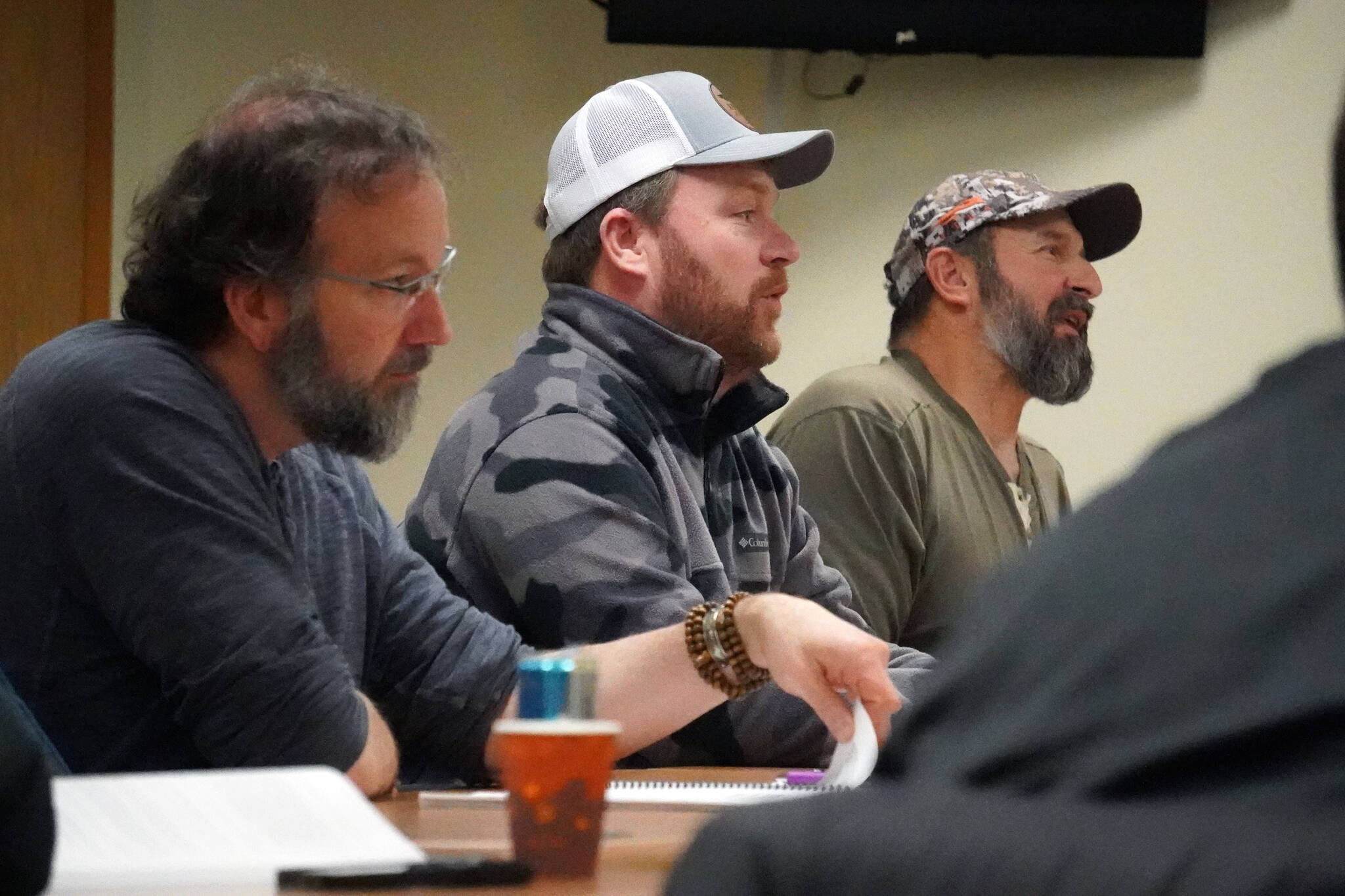After a meeting of the Kenai/Soldotna Fish and Game Advisory Committee last week focused on commercial fisheries, the group turned their attention Monday to sport fishing — discussing a slew of proposals that would affect sport fishing and especially the guide industry. Ultimately, the group supported none of the proposals discussed, advocating for remaining at the status quo.
The meeting was among a series of meetings by the local group to set recommendations on nearly 200 proposals to the State Board of Fisheries ahead of the Upper Cook Inlet Finfish meeting scheduled for late next month. The committee’s recommendations will be weighed by the board alongside public comment as they deliberate on changes to fishing regulations.
Ultimately, not one of the proposals discussed saw support from the committee, and the group voted against each of the proposals that they brought to the table on Monday.
On some proposals the group was largely in agreement, their opposition declared unanimously or unanimously with one abstention. These included proposals that would close king fishing on specific parts of the Kenai River based on the projected number of fish, close guided fishing entirely on the Kenai and Kasilof Rivers when king fishing is closed, prohibit nonresidents from fishing from a guided vessel if king salmon are at low abundance or allow anglers to fish for coho salmon from guided vessels on Mondays in August and September.
Other proposals divided the group. Among them were two proposals by the Kenai River Professional Guide Association —the first seeks to remove the restriction on guide activity on Sundays and Mondays, while the second would remove the hourly restriction that limits guides to operating between 6 a.m. and 6 p.m. on the Kenai River.
Monte Roberts, who sits in a sport fish guide seat on the committee and voted for the proposals, said that the restrictions had been implemented when people were fishing for kings — that removing the restrictions would reduce cramping and allow people fishing for species like trout to spread out.
“It’s an effort to give people options,” he said. “Defer pressure on king salmon so we can speed recovery of king salmon.”
Todd Smith, who sits in a commercial fishing seat and voted against the proposals, said that the restrictions on guiding are valuable to prevent crowding in the river. Dyer VanDevere, who also sits in a commercial fishing seat and also voted against the proposals, questioned whether increased activity could increase pressure on river habitat.
Both proposals were narrowly opposed by the committee by a margin of one vote and two votes respectively.
A pair of proposals by Smith were also opposed. The first to be discussed on Monday would expand the definition of restricted guiding on the Kenai River on the same days and times that the guide association’s proposals sought to repeal. Where existing regulation says that people may not “sport fish from a registered guide vessel” during the restricted period, Smith wrote that people instead “may not engage in guided sport fishing,” targeting guided fishing from shore.
Roberts said that the proposal would lead to further overcrowding — saying the same number of tourists or locals seeking guided activity are going to be looking for the service even if the active times are reduced. He said guides will shift their operations to get them there — meaning more guides out on the times when activity is permitted.
Smith contended that that regulations haven’t kept up with the way the fisheries have changed away from king salmon, pointing specifically to sockeye fishing from the shore.
“It’s possible to have a banger fishery while still taking a couple of days off,” he said.
The proposal was opposed with only Smith in favor, eight opposed and three abstentions.
A second proposal by Smith, which would implement the 6 a.m. to 6 p.m. restriction on guided fishing in the Kasilof River, was rejected by the group with Smith in favor and 11 opposed.
Greg Springer, who sits in a sport fish guide seat on the committee, said there was no reason to restrict a “functioning” fishery.
“The fish are there,” he said.
The committee will convene for another meeting on Board of Fisheries proposals Monday, Jan. 22, at 6:30 p.m. in the Cook Inlet Aquaculture Association on Kalifornsky Beach Road. Meetings are open to the public and public comment is encouraged by the committee.
For more information about the committee or the boards process, visit adfg.alaska.gov and look under “Regulations.”
Reach reporter Jake Dye at jacob.dye@peninsulaclarion.com.

